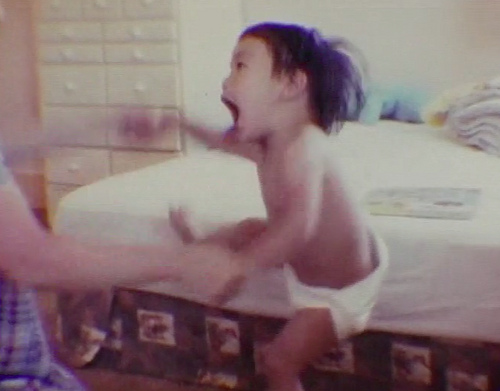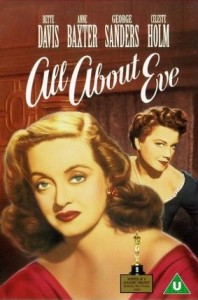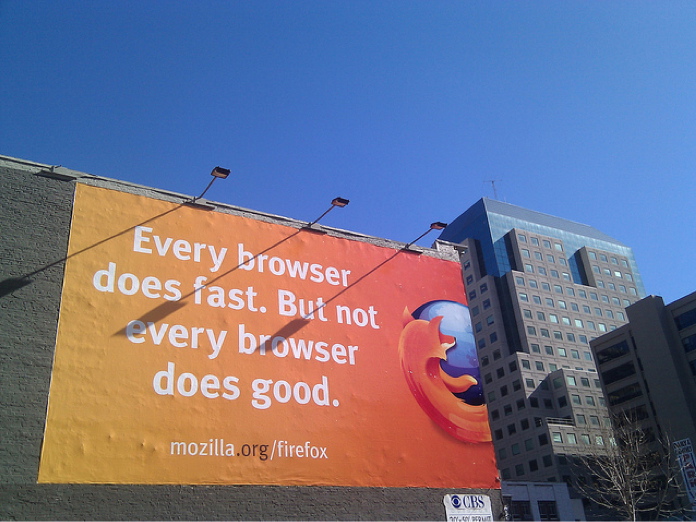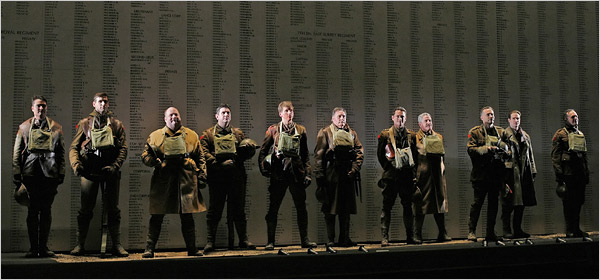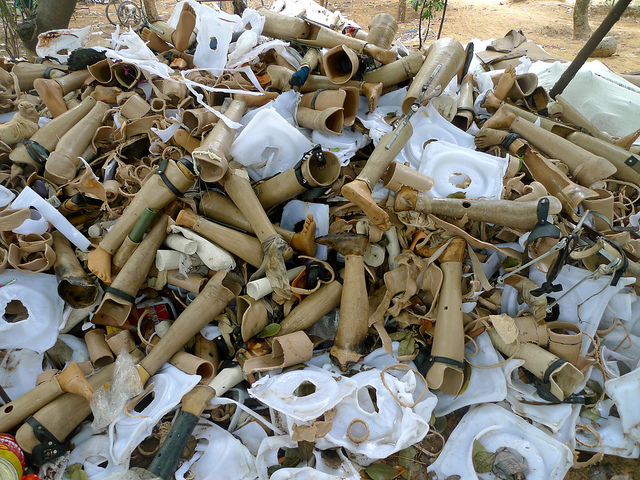"Dancing With Mom" by Nagu Tron from Flickr. Used under Creative Commons license.On Thursday of last week I finally caught up on all my blog reading, including Chad Bauman’s recent post on reconnecting with the art he was marketing by actually getting in and seeing a show. I can relate to that feeling of drain, of forgetting the value of what we are doing (and what we’re doing it for) sometimes. Especially with a new baby at home, and commuting 75 minutes each way to work each day, I find it … [Read more...]
CCI’s Next Gen Leaders Study: Are we all just climbing whiners?
I was at the Americans for the Arts conference in San Diego this year, however briefly, I was able to sit in on the wrap up session, in which a woman whose name and title I didn’t catch gamely trooped around the room cajoling participants into discussing their best takeaways from the conference sessions. People were reticent, exhausted, as they always are at the end of the conference, and it was generally speaking a thankless job for the moderator—but she did draw out a couple of energizing … [Read more...]
Stirring the Pot – how do you support playwrights without having a million dollars?
I was sitting in on a meeting a few days ago trying to brainstorm how to better support and create functional infrastructure around new play development, and it got me thinking. #newplay and Outrageous Fortune have cracked open a national conversation that is now being carried forward by the people at 2amtheatre and Howlround and others, and yet I often hear angst from both producers and writers that generally take the shape of an exasperated person, eyes rolled up and to the right, hands … [Read more...]
In Whose Hands Does Meaning Live?
Where does the meaning of a piece of work live? When does its particular resonance take shape? When a playwright puts words down on paper and submits them to be produced, is there something already inherent in those words that form the shape of the meaning? Or is the true shape of that meaning created by a director, whose particular eye and concept elevate the words from the page to the proscenium? This is not, it turns out, just an esoteric conversation. As we move into an age … [Read more...]
Communion, Captivation and Flow – With a Little Rapture Thrown In For Spice
Last fall, I was walking with a friend on the expansive brilliantly white patio outside the Kennedy Center in Washington, DC. It was a hot day, and when my friend needed to take a call, I snuck out of the sun to stand under the large flat roof of the building in the shade, next to the cool marble walls. The building is huge, a true monolith, and as I was looking up at the architecture, one of the many quotes they have engraved on the Kennedy Center’s walls caught my eye: “This country … [Read more...]
Tearing the Middle Man Limb from Limb (or, So What’s An Arts Organization To Do?)
I did not jump between the Theatre Communications Group (#TCG2011) and Americans for the Arts (#AFTA11) conferences this past weekend expecting to come away with a vague feeling of impending anarchy and possible civil war, but I did. And if you had told me as I was going into the weekend that I would have taken that general mood seriously enough to write about it, I would have laughed at you. Civil war seems so, well, dramatic…and yet, it is becoming clear to me that the mounting fatigue … [Read more...]
Social Media and the Arts: a groundbreaking new study
In my role at Theatre Bay Area, I commissioned Devon Smith of 24 Useable Hours (and now, of Threespot in Washington, DC) to conduct what she termed a Social Media Audit of the arts and cultural sector. In an effort to provide guidance to the field, Theatre Bay Area commissioned “The Tangled Web: Social Media in the Arts” in conjunction with a year-long intensive workshop series called Leveraging Social Media. This series, designed by noted social media expert Beth Kanter, provides Bay Area … [Read more...]
Sydni and the Green Feather
This past Saturday, I took a drive through a ferocious, and unseasonably late, rainstorm to the house of an eleven-year-old theatregoer named Sydni. I was interviewing Sydni and her mother, Sarah, as part of the research into the intrinsic impact of art that we are conducting/commissioning at Theatre Bay Area, in this case video interviews with a small group of everyday theatre patrons to understand why they go to theatre, why they value it, and what it means to them. We were videotaping … [Read more...]
Syncing Brainwaves Through the Fourth Wall
What is actually neurologically involved in communication? What does it take for a speaker to convey something to a listener, and what does it take for that listen to both comprehend what's being said and remember it? In a paper published in August 2010 in the scientific journal Proceedings of the National Academy of Science (PNAS) called (dryly) "Speaker-listener neural coupling underlikes successful communication," three researchers from Princeton University detail an experiment that … [Read more...]
Co-Opting Public Value
San Francisco is big on non-profit alternatives. I know this because we’ve done some asking around (and looking at other research) as we attempt a brand realignment on our TIX Bay Area discounted ticketing service. It turns out that, all other things being equal (a big caveat), a good percentage of Bay Area consumers will opt for a socially-helpful version of a service over a straight-up corporate one. As such, we will be touting the fact that we’re the only non-profit ticketing vendor in the … [Read more...]
The Value of Arts is Not Going to Be Found in Economics
This post originally appeared on the National Endowment for the Arts' Facebook page. The true value of art cannot be measured in economics alone. If that were the case, we’d be in trouble. It’s impressive that, per the new NEA research note Time and Money, the cultural industries contribute $70.9 billion to the U.S. annual GDP—but the total U.S. annual GDP is $14 trillion, which basically means the entire cultural sector contributes .51% of the entire GDP in any given year. On any given day, … [Read more...]
We Are The Memory Pushers
What we traffic in is memories. Theatre, particularly, but all the arts, are representations of abstracted or concrete parts of this world, pushed out from artists to audience with the goal of sticking in the head. We are memory makers, and it's important that we try not to forget that when we're building out experience packages and talking about the value we have to audiences in our materials. Daniel Kahneman, a Nobel laureate and founder of behavioral economics, has spoken eloquently about … [Read more...]
Avoiding the Great Amputation
David Brooks, primarily a political columnist and commentator, has written a book attempting to understand some of what makes us function as human beings, and as a collaborative society. He discussed the book, The Social Animal, in a recent TED Talk of the same name. He says: “For centuries, we have inherited a view of human nature based on the notion that we are divided selves. Reason is separated from the emotions, and society progresses to the extent that reason can suppress the … [Read more...]
Reading the Clouds
These past few weeks three things happened that got me thinking about the linguistic disconnects between us as artsmakers, those who advocate for us, and those who are supposed to be listening to that message. A crazy dance occurred in Washington around the budget and the possible defunding of the NEA (result: a haircut and the threat of a guillotine next fall). Artists and adminstrators from across the country marched on Washington for Arts Advocacy Day. And I frantically worked to build out … [Read more...]
How Do We Make People Care (Again)?
In March, arts advocate Arlene Goldbard spoke at the Association of Performing Arts Service Organizations conference in Austin. Goldbard believes we need to start using a more empowered (and less-numbers-based) vocabulary for arguing for the value of the arts. At one point she noted: “The best argument for arts education is that children today practice endlessly interacting with machines, developing a certain type of cognitive facility. But without the opportunity that arts education affords to … [Read more...]
We Need New Beans to Count
As an industry, the arts suffers from a value problem. This was thrown into sharp relief for me in an interview I had with an artistic leader from rural Wisconsin, who pointed out, “We’re all bean counters because the people we deal with, what they count is beans.” In almost everything we do to advocate for the arts, we place financial worth front and center, and in so doing we allow, even encourage, the people we’re trying to convince of art’s value to forget that that value is much more than … [Read more...]

